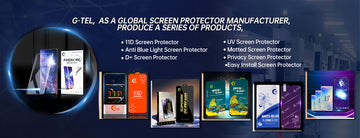Understanding Tempered Glass Thickness: 0.18mm vs 0.3mm vs 0.4mm vs 0.5mm
Understanding Tempered Glass Thickness: 0.18mm vs 0.3mm vs 0.4mm vs 0.5mm
G-Tel Glass Factory Insight into the Impact of Glass Thickness on Performance
Which Tempered Glass Thickness Is Right for Your Device?
When choosing a screen protector, thickness matters. At G-Tel Glass Factory, we manufacture tempered glass protectors in various thicknesses to balance sensitivity, durability, and cost. Below, we break down the unique characteristics of 0.18mm, 0.3mm, 0.4mm, and 0.5mm options — and how to properly measure glass without adhesive interference.
📏 Accurate Thickness Measurement Matters
Before comparing thicknesses, it's important to remove the AB glue layer before testing. Adhesive adds misleading microns to the actual glass thickness. At G-Tel, we use professional tools to measure the bare glass substrate, ensuring precision and product consistency.
🔹 0.18mm Tempered Glass – Ultra-Thin & Ultra-Sensitive
Pros:
-
Ultra-responsive touch sensitivity
-
Lightweight and almost invisible
-
Ideal for users prioritizing screen performance
Cons:
-
Lower durability under drop/impact
-
Less rigid structure
Best For: Gamers, artists, or stylus users who want minimal interference.
🔹 0.3mm Tempered Glass – The Balanced Standard
Pros:
-
Excellent balance between durability and sensitivity
-
Widely accepted as the industry standard
-
Affordable and highly compatible with most smartphones
Cons:
-
Slightly less durable than thicker variants under extreme impact
Best For: General users looking for everyday protection.
🔹 0.4mm Tempered Glass – Enhanced Strength
Pros:
-
Significantly more durable and shatter-resistant
-
Better protection for high-end or heavy devices
Cons:
-
Slight decrease in screen responsiveness
-
Slightly heavier feel
Best For: Users prioritizing protection over touch sensitivity.
🔹 0.5mm Tempered Glass – Maximum Protection
Pros:
-
Excellent for rugged use, outdoor environments
-
Highest drop resistance and edge integrity
Cons:
-
Reduced touch sensitivity, especially on older phones
-
May cause compatibility issues with some cases
Best For: Industrial applications, field workers, or parents of small children.
Why G-Tel Glass Factory Prioritizes Thickness Precision
At G-Tel Glass Factory, we:
-
Use laser micrometers to measure thickness post-AB glue removal
-
Calibrate our cutting and heating machines for ±0.01mm accuracy
-
Offer OEM/ODM thickness customization for branding and user experience optimization
Summary Table – Tempered Glass Thickness Comparison
| Thickness | Touch Sensitivity | Durability | Weight | Use Case |
|---|---|---|---|---|
| 0.18mm | ⭐⭐⭐⭐⭐ | ⭐⭐ | Light | Gaming, Stylus Use |
| 0.3mm | ⭐⭐⭐⭐ | ⭐⭐⭐⭐ | Medium | General Use |
| 0.4mm | ⭐⭐⭐ | ⭐⭐⭐⭐⭐ | Medium-Heavy | Rugged Phones |
| 0.5mm | ⭐⭐ | 🌟🌟🌟🌟🌟 | Heavy | Extreme Environments |
Customize Your Glass Thickness with G-Tel Glass Factory
Whether you're a retailer, brand owner, or distributor, we offer:
-
Thickness customization (0.18mm–0.5mm)
-
Branding and logo printing
-
AB glue and UV adhesive compatibility
-
Diamond-cut edge processing
Final Thoughts
Thickness isn't just a number — it's a performance factor. G-Tel Glass Factory empowers you to choose the ideal balance of sensitivity and protection, ensuring customer satisfaction and brand loyalty.
Need help selecting the right thickness for your market?
👉 Contact G-Tel Glass Factory for OEM consultation and samples.


